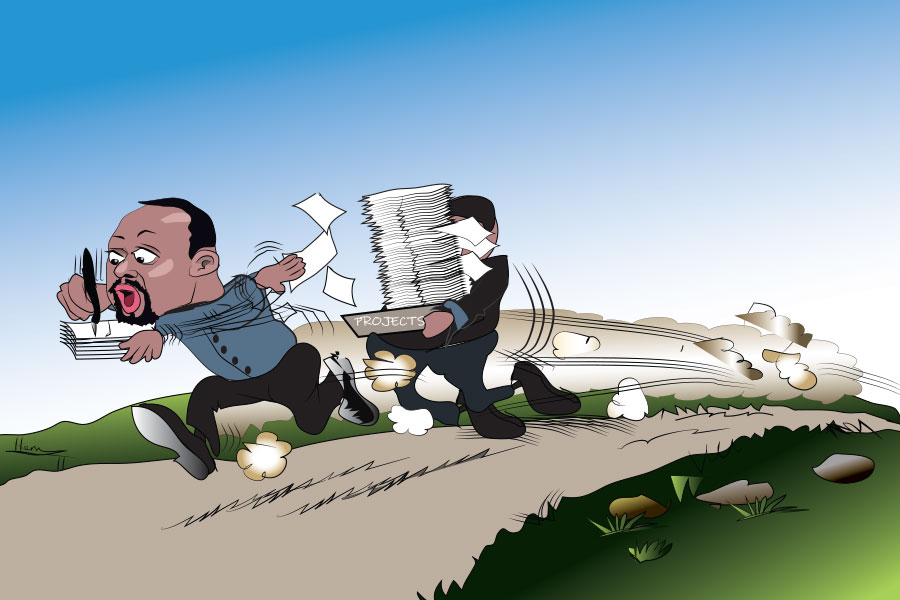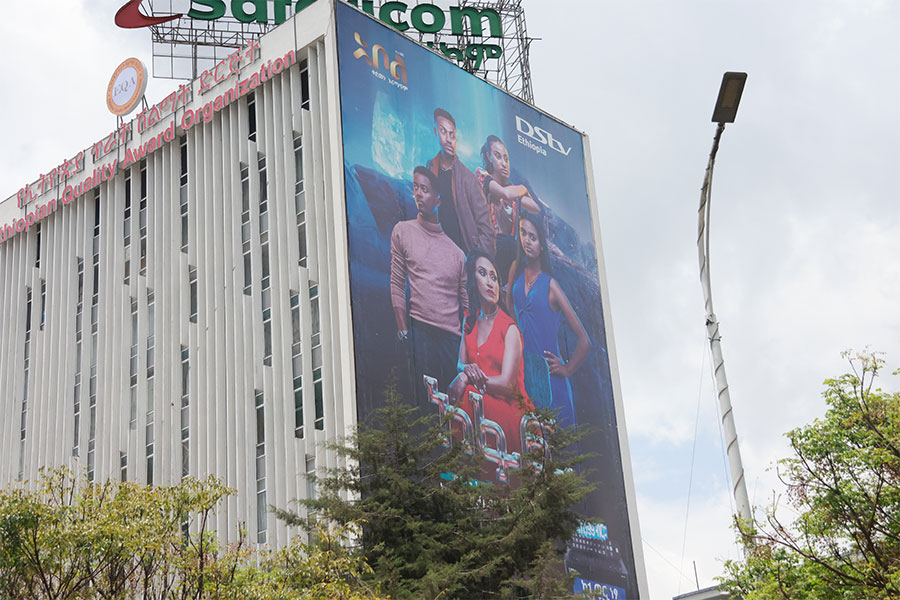
Viewpoints | Nov 29,2020
Aug 31 , 2019
By Adewunmi Emoruwa
While social media platforms offer speed and accessibility, a credible free press remains vital to support accountability in places where it is often hard to find, writes Adewunmi Emoruwa, an investor in African media startups and lead strategist at Gatefield, a public strategy group. This article first appeared on Project Syndicate.
In June, Senegalese President Macky Sall’s brother, Aliou Sall, resigned from his post as the head of a state-run savings fund, following public outrage over allegations (which he denies) that he was involved in corrupt oil and gas deals. That outrage was expressed via social media and on the streets of Dakar. But it was investigative journalism, carried out by the BBC, that triggered it, highlighting traditional media’s enduring power to effect change.
While social media platforms get a lot of attention for their speed and accessibility, a credible free press – which does not simply parrot the official line of governments or special interests, but rather seeks the truth – remains essential to strengthening accountability in places where it can often be hard to find. And independent investigative journalists in Africa have often exposed high-level corruption, abuse of power and shady business deals.
For example, in Kenya, a leading local newspaper reported that Philip Kinisu, former chairman of the Ethics and Anti-Corruption Commission, had received suspicious payments from the National Youth Service (NYS). Further investigations into the NYS revealed more corrupt deals, spurring Kenyans to take to the streets in protest.
But those with power know how to fight back – and they do not pull their punches. As a result, in many African countries, the free press is being compromised, suppressed and even dismantled.
The most extreme example of media suppression in Africa is found in Eritrea, where Reporters Without Borders estimates that at least 11 journalists are languishing in prison. The country has only one independent and non-partisan news outlet - a radio station run by exiled journalists based in Paris - and its signal is often jammed.
But attacks on African news media’s already-tenuous freedom are proliferating. They often come in the form of violence against independent journalists. Last year, two journalists in Nigeria were assaulted by security operatives attached to the President. In January, an undercover journalist in Ghana was fatally shot, after a politician called for retribution against him for publishing an exposé on corruption in the country’s football (soccer) leagues.
Governments also attempt to assert control over media outlets, even if it means shutting them down. In Tanzania, President John Magufuli’s government has suspended newspapers and banned radio stations critical of his administration, using pretexts such as “sedition” and “national security threats.” News organizations have been pressured – in at least one case, by armed men – to publish stories favorable to the ruling elite.
Independent media are squeezed further by chronic underfunding. Journalists not only lack resources to support their work; they are often so poorly compensated that they become vulnerable to corruption themselves. In Nigeria, “brown envelope journalism” – when reporters are paid by individuals or organisations to publish favourable stories – is commonplace.
Where independent media are silenced, coerced or captured, the public has few options for gaining any information beyond the narratives pushed by governments and special interests. Social media platforms can play a role, but their main strength - their democratic nature - is also their fatal flaw. They have proved ideal for spreading fake news, which taints public debate and erodes trust in both facts and institutions.
This dynamic was on stark display during Nigeria’s last election campaign. Fake news stories – including the claim that President Muhammadu Buhari had died and been replaced by a lookalike – went viral on social media. Millions of Nigerians were convinced, with some even carrying out killings in retaliation for made-up violence. Recognizing the power of these stories, figures close to political parties began to invent and circulate claims that would benefit their candidates, severely distorting the election campaign.
Independent traditional news outlets do not just avoid this problem; they are the key to addressing it, because only they can credibly verify the news being circulated on social media. That is why Facebook and Google have collaborated with traditional media organisations to combat the spread of fake news on their platforms in Nigeria, South Africa, Zambia, Kenya and Zimbabwe.
But if traditional independent media are going to fulfil their essential role, they need resources. In places where governments are placing constraints on press freedom, Western donors should step up to provide the necessary funding. Given the importance of a credible free press to both development and democracy, it is undoubtedly a sound investment.
PUBLISHED ON
Aug 31,2019 [ VOL
20 , NO
1009]


Viewpoints | Nov 29,2020

Viewpoints | Jun 15,2019

Radar | Oct 07,2023

Commentaries | Nov 27,2021

Commentaries | Sep 07,2019

Commentaries | May 18,2019

Viewpoints | Aug 10,2019

Editorial | Jun 01,2019

Viewpoints | Jan 22,2022

Featured | Sep 23,2023

Photo Gallery | 171712 Views | May 06,2019

Photo Gallery | 161951 Views | Apr 26,2019

Photo Gallery | 151697 Views | Oct 06,2021

My Opinion | 136317 Views | Aug 14,2021





Dec 22 , 2024 . By TIZITA SHEWAFERAW
Charged with transforming colossal state-owned enterprises into modern and competitiv...

Aug 18 , 2024 . By AKSAH ITALO
Although predictable Yonas Zerihun's job in the ride-hailing service is not immune to...

Jul 28 , 2024 . By TIZITA SHEWAFERAW
Unhabitual, perhaps too many, Samuel Gebreyohannes, 38, used to occasionally enjoy a couple of beers at breakfast. However, he recently swit...

Jul 13 , 2024 . By AKSAH ITALO
Investors who rely on tractors, trucks, and field vehicles for commuting, transporting commodities, and f...

Oct 4 , 2025
Eyob Tekalegn (PhD) had been in the Governor's chair for only weeks when, on Septembe...

Sep 27 , 2025
Four years into an experiment with “shock therapy” in education, the national moo...

Sep 20 , 2025
Getachew Reda's return to the national stage was always going to stir attention. Once...

Sep 13 , 2025
At its launch in Nairobi two years ago, the Africa Climate Summit was billed as the f...

Oct 5 , 2025 . By NAHOM AYELE
In Meqelle, a name long associated with industrial grit and regional pride is undergo...

Oct 5 , 2025 . By BEZAWIT HULUAGER
The federal government is set to roll out a new "motor vehicle circulation tax" in th...

Oct 5 , 2025 . By NAHOM AYELE
The Bank of Abyssinia is wrestling with the loss of a prime plot of land once leased...

Oct 5 , 2025 . By BEZAWIT HULUAGER
The Customs Commission has introduced new tariffs on a wide range of imported goods i...